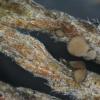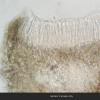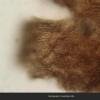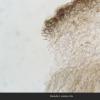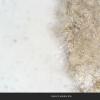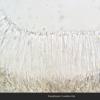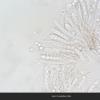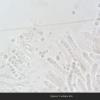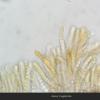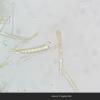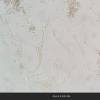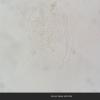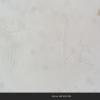
24-05-2025 22:34
Bruce MallochHello all, I am new here, thanks for having me. I

25-05-2025 11:51
Me mandan el material de Galicia, (España) reco

25-05-2025 08:12
Sylvie Le GoffBonjour. Puis avoir votre aide pour confirmer ou i

25-05-2025 08:22
me mandan el material seco de Galicia (España) re

21-05-2025 08:31
Reddish-brown, grain-like ascomata, measuring 0.7�

24-05-2025 12:30
Karen PoulsenHello, I found this on straw in water at lake sho

24-05-2025 12:06
Karen PoulsenHello, I found these Coelomycetes among several

21-05-2025 17:28
Bonjour Tous, Avec la bonne fiche cette fois (mer

23-05-2025 13:38
 Andgelo Mombert
Andgelo Mombert
Dear all, I'm looking for material from the USA of
Spherical-spored disco on Cistaceae
Bruce Malloch,
24-05-2025 22:34
Hello all,
I am new here, thanks for having me. I collected this inoperculate that I can't seem to identify:
Description: Discomycete. Apothecia superficial, substipitate, planar, scattered-gregarious, up to ~500µm wide, soft fleshy; receptacle duff, becoming dark grey-brown with age, roughened-subtomentose to subglabrous at maturity; disc pale buff to caramel brown with a subhyaline margin in young apothecia. Stroma absent. Ectal excipulum at the margins composed of pale brown textura porrecta, darkening with age, grading into an irregular textura angularis-prismatica intermixed with irregular filamentous hyphae; in young specimens, hyphae terminate in short, blunt, pale brown, sparsely septate hairs with smooth walls. Subhymenium pale brown. Medullary excipulum a hyaline textura irregularis with occasional clusters of hyaline textura-globosa, loose. Paraphyses hyaline, cylindrical to clavate, basally branched, occasionally septate, 2.5-4.0µm wide, terminating slightly above asci. Asci clavate, 8-spored, uniseriate or ocasionally biseriate at the apex, 65-70x6.5-9.0µm, without a refractive apical pore, J-, lacking croziers. Ascospores hyaline, irregularly globose to subglobose, 5.0-7.0µm diameter, smooth-walled. Anamorph not observed.
Description: Discomycete. Apothecia superficial, substipitate, planar, scattered-gregarious, up to ~500µm wide, soft fleshy; receptacle duff, becoming dark grey-brown with age, roughened-subtomentose to subglabrous at maturity; disc pale buff to caramel brown with a subhyaline margin in young apothecia. Stroma absent. Ectal excipulum at the margins composed of pale brown textura porrecta, darkening with age, grading into an irregular textura angularis-prismatica intermixed with irregular filamentous hyphae; in young specimens, hyphae terminate in short, blunt, pale brown, sparsely septate hairs with smooth walls. Subhymenium pale brown. Medullary excipulum a hyaline textura irregularis with occasional clusters of hyaline textura-globosa, loose. Paraphyses hyaline, cylindrical to clavate, basally branched, occasionally septate, 2.5-4.0µm wide, terminating slightly above asci. Asci clavate, 8-spored, uniseriate or ocasionally biseriate at the apex, 65-70x6.5-9.0µm, without a refractive apical pore, J-, lacking croziers. Ascospores hyaline, irregularly globose to subglobose, 5.0-7.0µm diameter, smooth-walled. Anamorph not observed.
Substrate: Dead leaves on dead stem of live Hudsonia tomentosa
I have tentatively filed it under the genus Pithyella based on morphology, but these are all on cryptogams i.e. ferns, bryophytes, and other fungi.
Does anyone recognize this fungus? Thank you!
Bruce
Hans-Otto Baral,
25-05-2025 09:01

Re : Spherical-spored disco on Cistaceae
Hi
First you must know that discomycetes are much easier to classify when studied alive (in water). The contents of the paraphyses are important for higher classification. Second it is disadvantageous to use Melzer for the iodine reaction of asci. The latter you did not show, but it is possible if you find MLZ- that the reaction would be IKI+.
You did not show the ascus base, how certain is the absence of croziers?
My database has nothing on Cistaceae with such spores.
Bruce Malloch,
25-05-2025 19:20
Re : Spherical-spored disco on Cistaceae
Hi Hans-Otto,
Thank you for taking a look at my collection. Unfortunately it was not possible to look at it fresh, as this was "bycatch" that came in with a collection of a pyrenomycete I made last summer.
My choice of Melzer's was because I was humouring the possibility this species would be in Nauta & Spooner (1999) British Dermateaceae, and the authors of that publication use Melzer's for amyloidity testing. I also tried Lugol's, but it was also negative. Just now, I tried Lugol's with KOH pretreatment, and that also is negative.
I have attached some additional pictures of the asci in Lugol's and (separately) KOH which show the ascus base. One photo also shows what might be an ascus following spore dehiscence.
Bruce
